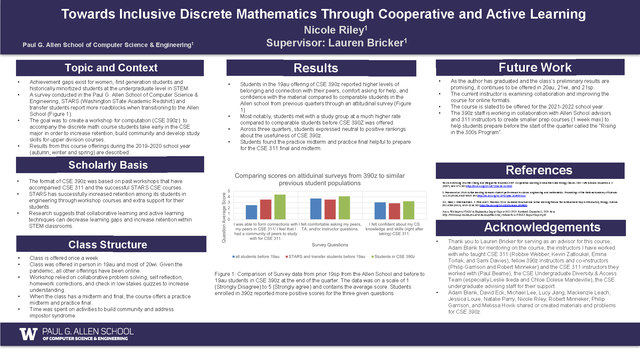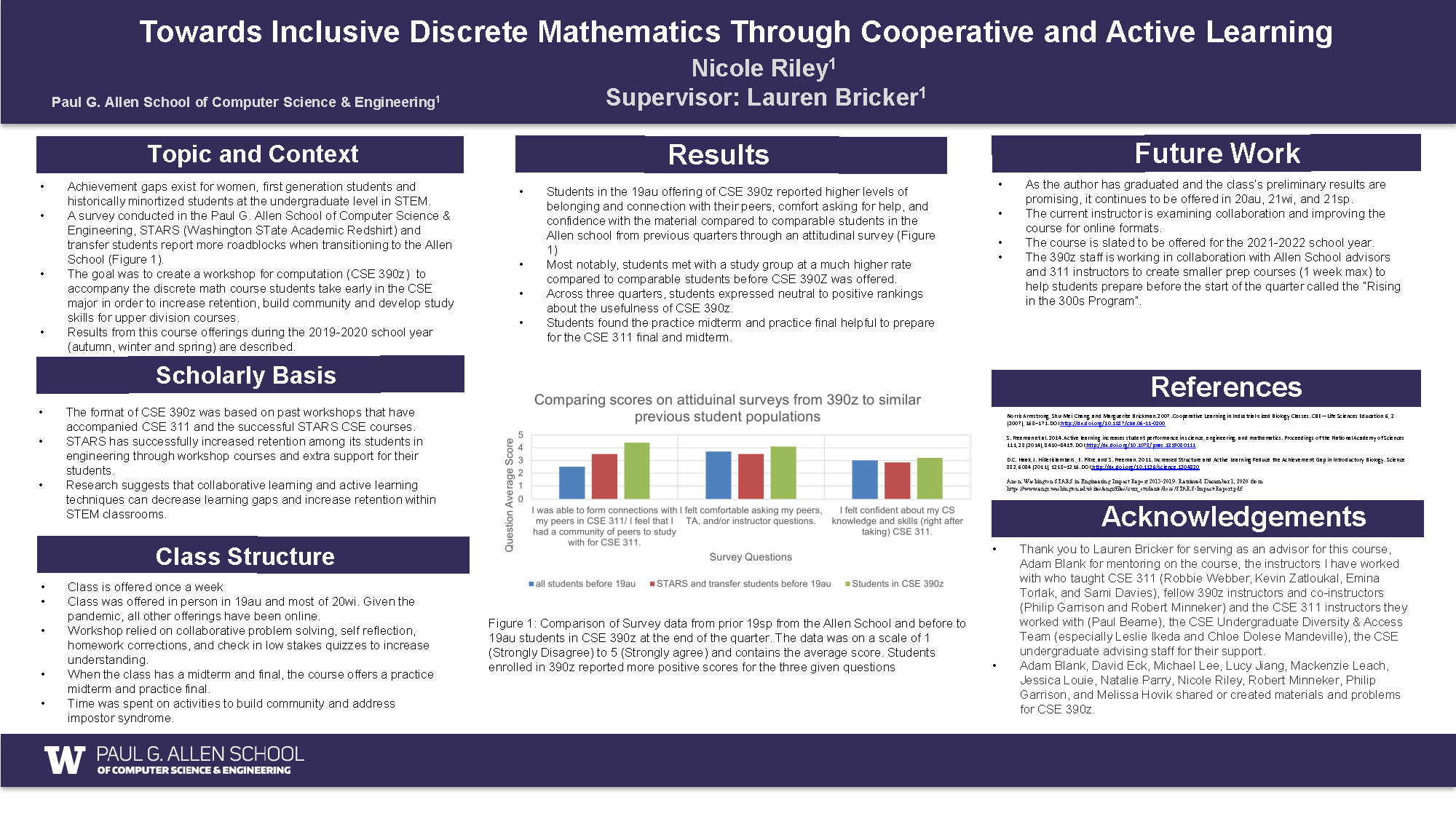Skip to main contentResource added 
We designed this workshop to encourage student collaborative learning in small group settings to solve discrete math problems and used active learning techniques, reflection, and practice exams to build and self-assess understanding. This class evolved from a 2 credit course in 19au to a 1 credit course that continues to be offered quarterly.
Preliminary findings via attitudinal surveys suggest the workshop helps students within our populations of interest experience higher levels of connection and belonging within the Allen school, feel more comfortable asking questions, and engage with study groups more compared to previous groups of students from the same population. This demonstrates that building extra support within upper level classes can help students’ transition from prerequisite courses to upper level major courses. This work suggests that lessons from active learning and creating smaller communities of students can help students with less background in STEM succeed and acclimate to new majors well.
Towards Inclusive Discrete Mathematics Through Cooperative and Active Learning

Full description
Video Presentation
Authors:
- Nicole Riley, Computer Science, UW Seattle
- Robert Minneker, Computer Science, UW Seattle
Abstract:
Achievement gaps in STEM exist in our education system, including computer science, at the undergraduate level for women, first generation students, and students from historically minoritized groups. In a survey conducted in the Paul G. Allen School of Computer Science and Engineering, it was found that STARS (Washington State Academic RedShirt) and transfer students reported more roadblocks when transitioning socially and to the rigor of courses within the Allen school. Research suggests that active and cooperative learning techniques decrease learning gaps and increase retention within STEM classrooms, particularly among the groups mentioned (Haak et al., 2011; Norris et al., 2007; Freeman et al., 2004). We created a workshop for computation (CSE 390z) to accompany the discrete math course students take early in the major (CSE 311) in order to increase retention, build community, and develop study skills required for upper division classes to address these problems.We designed this workshop to encourage student collaborative learning in small group settings to solve discrete math problems and used active learning techniques, reflection, and practice exams to build and self-assess understanding. This class evolved from a 2 credit course in 19au to a 1 credit course that continues to be offered quarterly.
Preliminary findings via attitudinal surveys suggest the workshop helps students within our populations of interest experience higher levels of connection and belonging within the Allen school, feel more comfortable asking questions, and engage with study groups more compared to previous groups of students from the same population. This demonstrates that building extra support within upper level classes can help students’ transition from prerequisite courses to upper level major courses. This work suggests that lessons from active learning and creating smaller communities of students can help students with less background in STEM succeed and acclimate to new majors well.
Poster PDF
View a PDF version of the poster in Google Drive to enlarge the image or download a copy.
Comments
The presenter for this poster will be available to respond to comments during Poster Session 1 on April 20, 2:00-2:50 p.m.Comments
to view and add comments.
Annotations
No one has annotated a text with this resource yet.
- typeImage
- created on
- file formatjpg
- file size634 kB
- publisherUniversity of Washington
- rights
Downloadable variants:


